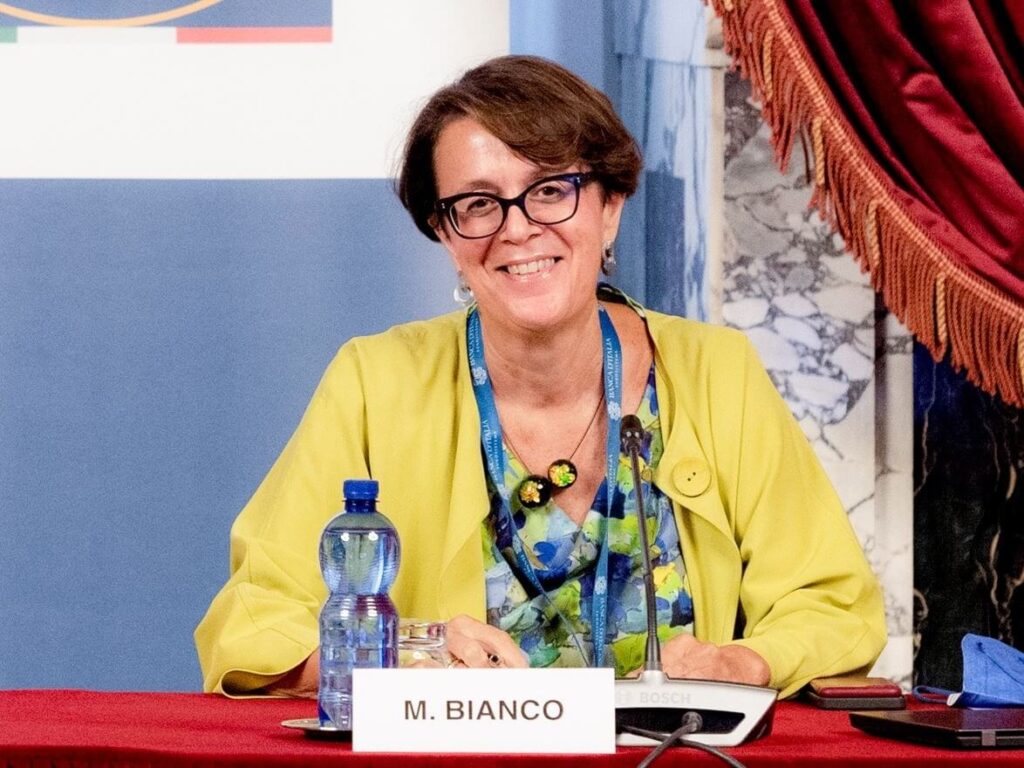
Topics
- Credit
- Enabling Environment
- Financial Inclusion Strategy
- Responsible Data Practices
- Underserved Groups
- Women
Series
The financial inclusion landscape has changed drastically since the Global Partnership for Financial Inclusion (GPFI) was established over a decade ago. The Global Findex 2021 revealed that the inclusive finance sector has made significant progress in access — with worldwide account ownership reaching nearly 76 percent of the global population. This uptick largely has been driven by rapid digitalization, investments in digital public infrastructure, and enabling policy environments across several countries.
We should celebrate these accomplishments and continue to focus on the benefits for low-income consumers. There are plenty of examples of how financial services have been designed to support low-income populations. In Kenya, mobile money users received remittances from their social networks in times of need to avoid cutting back on essential spending. In Bangladesh, we have seen a reduction in extreme poverty levels due to increased mobile money remittances from people migrating to cities to support their families.
However, there is still work to do, especially to reach the most vulnerable populations. Going forward, it is important that we consider the consumer segments that remain excluded and the underlying reasons behind this exclusion while also continuing to better understand newer risks that are emerging and becoming increasingly relevant.
We must address existing vulnerabilities that stem from poverty, low-income levels, limited financial education, and external conditions that can exacerbate these vulnerabilities, such as the availability, or lack thereof, of adequate infrastructure or consumer and data protection mechanisms. To help classify types of vulnerabilities that can arise, CFI uses a vulnerability framework. This framework categorizes the four types of vulnerabilities specific to digital financial services as information vulnerability, supply vulnerability, redress vulnerability, and impact vulnerability.
It is important that we consider the consumer segments that remain excluded and the underlying reasons behind this exclusion while also continuing to better understand newer risks that are emerging and becoming increasingly relevant.
The GPFI has worked over the last few years to address some of these vulnerabilities. The importance of infrastructure is the object of the current Indian Presidency; consumer protection and financial education were addressed during the Italian Presidency; and a G20 living database of best practices of MSMEs innovative financing was created during the Indonesian Presidency.
Despite much progress in addressing vulnerabilities low-income people face, new risks continue to emerge.
1. Economic recovery from the pandemic remains a priority for several nations.
The pandemic heavily impacted micro- and small- enterprises (MSEs) and women – two large consumer groups who are often excluded from formal financial services. The pandemic exposed that despite recent progress in narrowing the gender gap, it remains a priority focus area for the sector. GSMA’s mobile gender gap reports reveal that women’s digital inclusion is slowing across low- and middle-income countries for the second consecutive year, and several other reports have shown that we need to address the challenges women have in using financial services to see the full gains of access.
2. Geo-political risks are increasing the mass displacement of people, disproportionately affecting low-income individuals, and heightening the risk of financial exclusion.
Coping strategies require helping low-income people and vulnerable consumers adapt and transition to new livelihoods. Cash transfers, insurance, and remittances can play a crucial role, but we must first address problems with innovation, distribution, and the cost of remittances.
3. The wide adoption of new technologies in the financial sector, if not correctly governed, poses a significant risk of further excluding and exploiting vulnerable populations.
This is especially true as AI becomes more entrenched in every facet of financial products and services and distribution channels, and instances of fraud and cybercrime are on the rise.
To deliver financial services responsibly, we must address current and emerging exclusions, anticipate possible sources of vulnerability, and consider who might be adversely affected. The inclusive finance sector has the potential to develop products and services that allow consumers, especially the most vulnerable, to become more resilient and adapt to their new realities.
In response to these challenges, RFF launched three working groups: 1) Responsible Recourse, led by the Better than Cash Alliance (BTCA) and Bangko Sentral ng Pilipinas; 2) Responsible Digital Credit, led by CGAP, and 3) Responsible AI, led by the office of the UNSGSA and CFI. Each group aims to influence and build a collective effort towards a more responsible finance ecosystem and will present its findings at the upcoming event in India.
RFF convenes July 5-7, 2023, in Bengaluru, India, under the theme of Shaping a Responsible Digital Finance Ecosystem. Visit the RFF website to view the full agenda.










